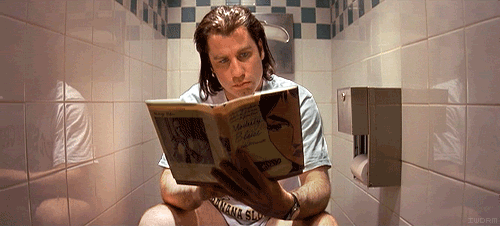MODESTY
BLAISE - PETER O'DONNELL
I've read a few books in my time and I'm with Kingsley Amis on
this one: Peter O'Donnell's Modesty Blaise is "endlessly
fascinating", and is indeed "one of the great
partnerships in fiction, bearing comparison with that of Sherlock
Holmes and Dr Watson". It can be taken that Kingsley Amis
was a fan as is also Quentin Tarantino who had John Travolta's
character in Pulp Fiction reading the graphic novel version
throughout the film, right up to the point of him being shot dead by
Bruce Willis.
O'Donnell's Modesty Blaise was an innovative and perfectly executed
creation that broke the mould and smashed the template of how an
action hero should be. The most obvious shift, of course, was in
casting a woman in the lead role. Such a good writer was O'Donnell
that in a very casual manner he was able to define various aspects of
her character as to render her utterly believable. Very easily
Modesty Blaise could have turned out to be merely a female version of
James Bond but instead he created a fully developed,
multi-dimensional, multi-faceted character with a slew of quirks,
foibles, weaknesses and strengths that made her unique. In describing
the way in which she dressed, played, socialised and fought as well
as explaining her history, reasoning and motivation, O'Donnell
painted a complete picture yet at the same time wove an air of
intrigue around her that teased the reader into wanting to know more.
Though adept with all types of guns Modesty Blaise's weapon of choice
was the kongo; essentially a small wooden dumb-bell that fitted
neatly into her palm which she used either to knock out or to kill
any opponent when fighting hand-to-hand. In addition she might also
use a bow and arrow, nerve gas or even a technique called The Nailer;
guaranteed even if only momentarily to stop any man in his tracks.
Her partner, Willie Garvin, was also a fully-fledged creation in his
own right and could easily have been cast in the lead role in his own
adventures. A blonde-haired, blue-eyed, cockney ex-degenerate; he was
a weapons master par excellence though his personal preference was
knives of which he always carried two. Modesty Blaise had taken him
under her wing after sensing an untapped potential within him and had
subsequently turned him into the most loyal and most deadly
comrade-in-arms.
Together they made a perfect partnership, organising and running a
world-wide crime syndicate called The Network before disbanding it to
live in luxurious retirement in England. This is the point at which
O'Donnell chose to start his story, with Blaise and Garvin being
called out of retirement by the British Secret Service to help
protect a shipment of diamonds bound for the Middle East.
During their time running The Network, friendly relationships had
been maintained with Britain and cemented by the passing of
information beneficial to the government. Due to her extensive
knowledge of and array of contacts within Continental and Middle
Eastern underworlds, Blaise is viewed as the ideal person to
establish whether suspicions of a plot to steal the diamonds are true
and if so, who might be behind the plot and how and when might it
happen? Blaise and Garvin are pitched against a vicious crime lord
called Gabriel and the resulting escapade is imaginative, inventive,
fast-paced and stylishly violent.
It should be noted that O'Donnell first introduced the Modesty Blaise
character as a comic strip in 1963 that was syndicated in newspapers
throughout the world. The actual novel was published in 1965, basing
itself on a screenplay O'Donnell had written for a film version to be
directed by Joseph Losey. The film turned out to be a pop-art kitsch
travesty that was so bad it was actually good. Italian actress Monica
Vitti played Modesty and Terence Stamp played Garvin but stealing the
film was Dirk Bogarde who played an extravagantly camp Gabriel
leading a gang of blatantly gay henchmen. Needless to say, it was
nothing at all like the vision O'Donnell had presented and he was none too happy with the finished result.
Even though Losey's film was in its own way peculiarly influential,
it seems to have been the kiss of death upon all other attempts at
getting Modesty Blaise successfully depicted in film again. There
have been a couple of valiant attempts but none have come to anything
which is really quite strange, particularly when compared to the
James Bond franchise or even to Batman which managed to escape the
Adam West 1960s version to evolve into the brooding, dark character
depicted in films nowadays. Instead, it's in the books, the comic
strips and even radio plays that Modesty Blaise has found her most
successful homes. That's not to say, however, that O'Donnell's
Modesty Blaise character has failed to be an influence upon cinema as
it's very easy to recognise her in a wide variety of films from The
Avengers, La Femme Nikita, Underworld, Lara Croft, and not least
Quentin Tarantino's Kill Bill. Modesty Blaise, though, was always the
original and Peter O'Donnell is deserving of much credit and respect
for his innovative vision, his hyperbolic imagination, his sound
grasp of femininity, and his excellent writing.
Unholy trinity: O'Donnell, Vitti, Losey
John Serpico










